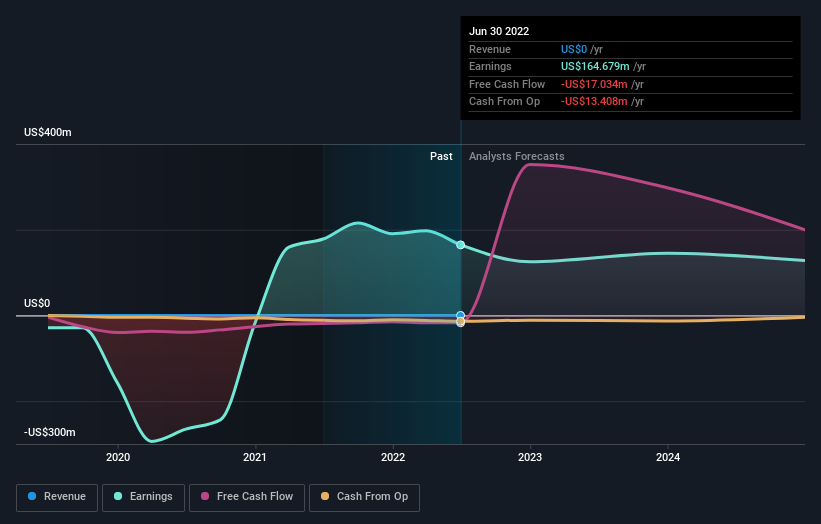Africa Oil Corp.'s (TSE:AOI) largest shareholders are individual investors with 40% ownership, private equity firms own 14%
To get a sense of who is truly in control of Africa Oil Corp. (TSE:AOI), it is important to understand the ownership structure of the business. And the group that holds the biggest piece of the pie are individual investors with 40% ownership. In other words, the group stands to gain the most (or lose the most) from their investment into the company.
And private equity firms on the other hand have a 14% ownership in the company.
Let's delve deeper into each type of owner of Africa Oil, beginning with the chart below.
See our latest analysis for Africa Oil
What Does The Institutional Ownership Tell Us About Africa Oil?
Many institutions measure their performance against an index that approximates the local market. So they usually pay more attention to companies that are included in major indices.
As you can see, institutional investors have a fair amount of stake in Africa Oil. This suggests some credibility amongst professional investors. But we can't rely on that fact alone since institutions make bad investments sometimes, just like everyone does. If multiple institutions change their view on a stock at the same time, you could see the share price drop fast. It's therefore worth looking at Africa Oil's earnings history below. Of course, the future is what really matters.
We note that hedge funds don't have a meaningful investment in Africa Oil. Looking at our data, we can see that the largest shareholder is Helios Investment Partners LLP with 22% of shares outstanding. In comparison, the second and third largest shareholders hold about 7.8% and 1.3% of the stock. Furthermore, CEO Keith Hill is the owner of 0.8% of the company's shares.
On studying our ownership data, we found that 25 of the top shareholders collectively own less than 50% of the share register, implying that no single individual has a majority interest.
While studying institutional ownership for a company can add value to your research, it is also a good practice to research analyst recommendations to get a deeper understand of a stock's expected performance. Quite a few analysts cover the stock, so you could look into forecast growth quite easily.
Insider Ownership Of Africa Oil
The definition of an insider can differ slightly between different countries, but members of the board of directors always count. The company management answer to the board and the latter should represent the interests of shareholders. Notably, sometimes top-level managers are on the board themselves.
Most consider insider ownership a positive because it can indicate the board is well aligned with other shareholders. However, on some occasions too much power is concentrated within this group.
Our most recent data indicates that insiders own some shares in Africa Oil Corp.. As individuals, the insiders collectively own CA$15m worth of the CA$1.2b company. It is good to see some investment by insiders, but it might be worth checking if those insiders have been buying.
General Public Ownership
With a 40% ownership, the general public, mostly comprising of individual investors, have some degree of sway over Africa Oil. While this size of ownership may not be enough to sway a policy decision in their favour, they can still make a collective impact on company policies.
Private Equity Ownership
With an ownership of 14%, private equity firms are in a position to play a role in shaping corporate strategy with a focus on value creation. Sometimes we see private equity stick around for the long term, but generally speaking they have a shorter investment horizon and -- as the name suggests -- don't invest in public companies much. After some time they may look to sell and redeploy capital elsewhere.
Next Steps:
I find it very interesting to look at who exactly owns a company. But to truly gain insight, we need to consider other information, too. Like risks, for instance. Every company has them, and we've spotted 5 warning signs for Africa Oil (of which 3 are a bit unpleasant!) you should know about.
If you would prefer discover what analysts are predicting in terms of future growth, do not miss this free report on analyst forecasts.
NB: Figures in this article are calculated using data from the last twelve months, which refer to the 12-month period ending on the last date of the month the financial statement is dated. This may not be consistent with full year annual report figures.
Have feedback on this article? Concerned about the content? Get in touch with us directly. Alternatively, email editorial-team (at) simplywallst.com.
This article by Simply Wall St is general in nature. We provide commentary based on historical data and analyst forecasts only using an unbiased methodology and our articles are not intended to be financial advice. It does not constitute a recommendation to buy or sell any stock, and does not take account of your objectives, or your financial situation. We aim to bring you long-term focused analysis driven by fundamental data. Note that our analysis may not factor in the latest price-sensitive company announcements or qualitative material. Simply Wall St has no position in any stocks mentioned.
Join A Paid User Research Session
You’ll receive a US$30 Amazon Gift card for 1 hour of your time while helping us build better investing tools for the individual investors like yourself. Sign up here


